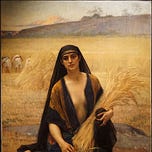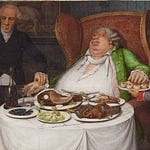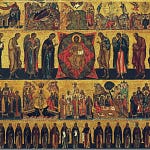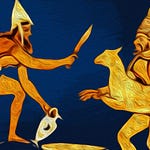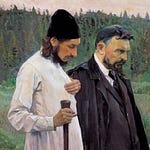There are passages in the Scripture that we read, and remember, and even mention in various contexts without truly comprehending their significance. (I rather suspect that this phenomenon can be observed not exclusively with respect to the Scripture but somewhat in general with respect to much of what we read or say.) It is in this particular way that a passage from Exodus recently caught my attention.
And six years thou shalt sow thy land, and shalt gather in the fruits thereof: But the seventh year thou shalt let it rest and lie still; that the poor of thy people may eat: and what they leave the beasts of the field shall eat. In like manner thou shalt deal with thy vineyard, and with thy olive yard. - Exodus 23:10-11
To be sure, the meaning seems clear: that the poor may eat, and that the beasts shall eat. (Apparently, the loss of wildlife habitat to farming was already a topic even then.) But this is not what struck me. I tried to imagine what it would take for me to work six years and then take a year off. The answer is straight forward: I would have to save one-sixth of all I earn in order to live off the savings in the seventh year.
Ruth Gleaning by Alexandre Cabanel, 1886
In this context, to set aside 16.5% of everything is not a savings plan, not a retirement plan, not a way to save up for a large purchase, but a sacrifice - one cannot expect to get the lost profit back. The agricultural particulars of soil management aside, it is possible to be one-sixth wealthier by simply not taking every seventh year off - by rotating fields, by continuing to harvest grapes and olives, by building a fence against the beasts, and by letting someone else worry about the poor - there are ways to be one-sixth better off. But this is not the ethic of the Scripture. The Scripture teaches sacrifice. It is a commandment of the Lord; so, the sacrifice is to God: thou shalt let it rest and lie still.
Listen to this episode with a 7-day free trial
Subscribe to Phroneo to listen to this post and get 7 days of free access to the full post archives.


